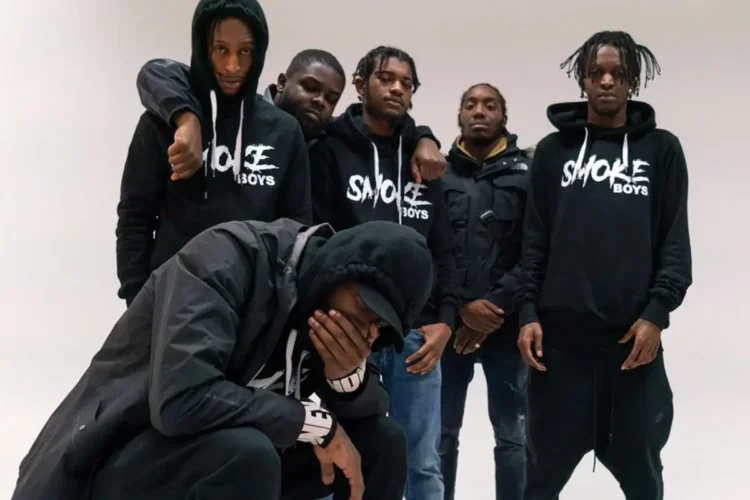By David Young-
Recent research from the University of Manchester has ignited a fervent call for the Crown Prosecution Service (CPS) to revise its guidance on gang-related offenses, particularly regarding the contentious use of rap music as evidence.
The study, titled “Compound Injustice,” sheds light on a troubling trend where rap lyrics and videos are increasingly utilized as prosecution evidence in youth violence cases across England and Wales.
The report highlights a disturbing reality: rap, especially from the drill music genre, is often cherry-picked by prosecutors to bolster their cases.
The debate stems from the Policing and Crime Act 2009, which defines ‘gang-related’ activities as those associated with groups consisting of at least three individuals who exhibit characteristics enabling them to be identified as a group.
While the law provides a broad definition to tackle gang activity effectively, concerns have been raised regarding the unintended consequences of its application, especially concerning drill music.
Drill music, a genre characterized by its gritty lyrics and often violent themes, has come under scrutiny for its alleged role in promoting gang culture and glamorizing criminal behaviour.
Critics argue that the genre’s glorification of violence and criminal activity through its lyrics and accompanying social media posts contributes to the normalization of such behaviours among impressionable youth.
Videos posted online by gang members often feature explicit threats, taunts directed at rival groups, and displays of weapons, creating an environment where disputes can escalate rapidly and reach a wider audience.
Critics of drill music say it extends beyond social media, with analysts highlighting its impact on gang dynamics within prisons. Gang-affiliated inmates use drill music to assert dominance, recruit new members, and perpetuate a culture of violence behind bars.
The prevalence of drill music in correctional facilities also highlights the need for comprehensive measures to address its influence both inside and outside prison walls.
But opposing critics argue that the inclusion of drill music in CPS guidelines inadvertently legitimizes and perpetuates harmful stereotypes about urban communities, particularly those of Black origin, by associating their cultural expression with criminality.
They emphasize the importance of avoiding conscious and unconscious bias when addressing issues related to gang activity and urban culture.
Re-evaluation
In response to these concerns, researchers are calling for a re-evaluation of the role of drill music in CPS guidelines and a more nuanced approach to addressing gang-related offenses.
They advocate for strategies that focus on community engagement, youth intervention, and addressing the root causes of gang involvement, rather than solely relying on punitive measures.
These selections frequently feature violent or antisocial themes and are attributed to defendants or their associates. However, what’s most concerning is how this evidence is wielded in courtrooms.
Contrary to conventional legal practice, rap is seldom presented as direct evidence of intent or confession. Instead, it’s employed as indirect or ‘bad character’ evidence, insinuating a predisposition towards violence, intent to inflict harm, or association with gangs.
This approach has drawn sharp criticism from legal scholars and commentators, who argue that it perpetuates unfounded stereotypes and unfairly targets Black youth from economically marginalized backgrounds.
The University of Manchester’s research, examining 68 cases involving 252 defendants from 2020 to 2023, paints a troubling picture.
It reveals a disproportionate impact on Black individuals, with two-thirds of defendants being Black and an additional 12% being Black/mixed race.
Furthermore, nearly two-thirds of cases involving rap evidence were woven into a prosecution narrative centered around gangs.
Keir Monteith KC, of Garden Court Chambers, minced no words when addressing the issue. Speaking at a lecture titled “Art Not Evidence: the misuse of rap in criminal trials,” Monteith criticized the CPS guidance for its glaring omissions.
He highlighted the absence of acknowledgment regarding drill music’s mainstream status, the failure to address the risk of perpetuating stereotypes, and the lack of encouragement to seek alternative evidence.
Monteith, a member of the ‘Art Not Evidence’ campaign group, emphasized the urgency of reform. Despite a two-year review of guidelines, the misuse of rap and drill in criminal cases persists unchecked.
The debate surrounding the use of rap as evidence in criminal trials reveals broader issues of racial bias and cultural misinterpretation within the criminal justice system.
There are times when it will be necessary to make reference to drill music in criminal cases, but each situation will be cade specific.
Urgent action is needed to ensure that legal proceedings are fair, just, and devoid of unjustifiable assumptions.

